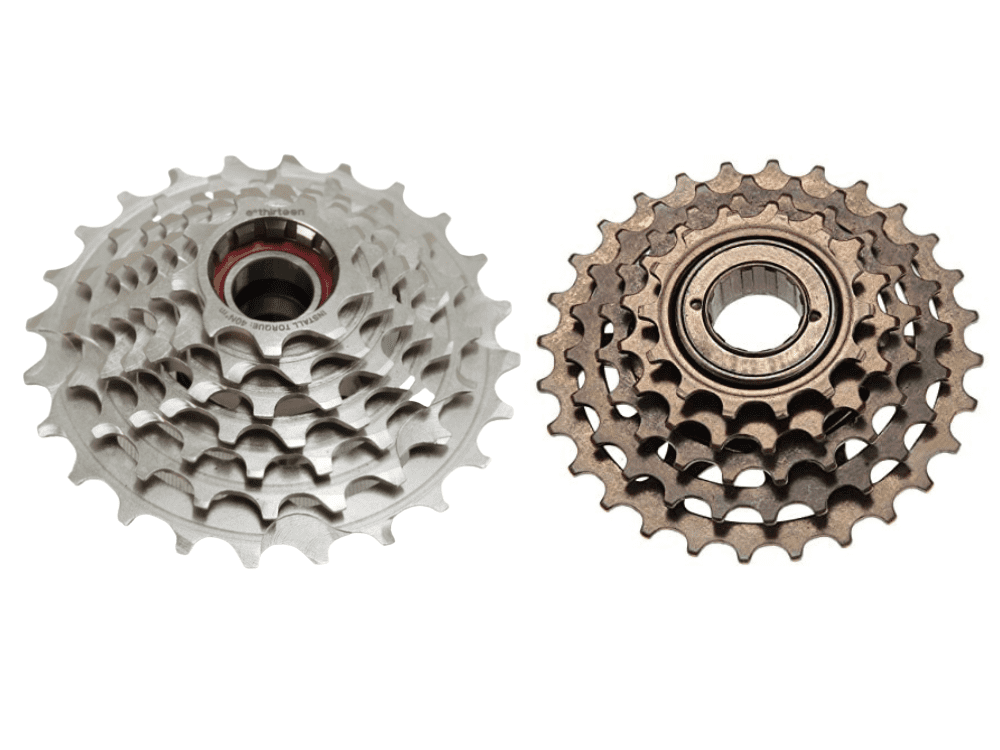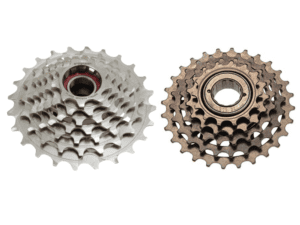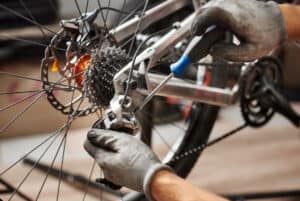If your bike is not riding right for your style, this might be because of the freewheels or cassettes. These are the gears at the back of your bike and are generally called a cluster. In reality, they are two different systems.
Bikers are usually confused about the difference between freewheel vs cassette because both cogs are similar in appearance and perform the same function.
Let’s take a look at the difference between freewheels and cassettes.
How Do Freewheels and Cassettes Differ?
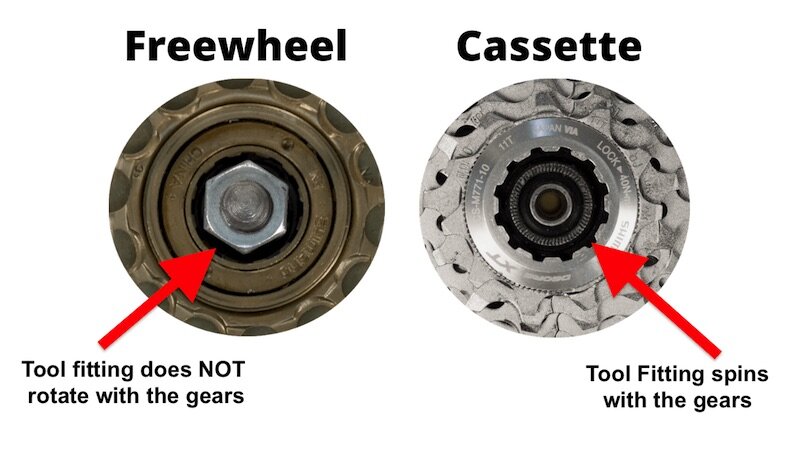
The freewheel is one unit, while the cassette is a set of cogs or gears.
For the freewheel system, the act of pedaling will tighten it to the hub.
On the other hand, the cassette hub consists of gears that slide into a cassette while you pedal, and this is held in place by a lock ring.
While freewheels and cassettes have the same function and look alike, they have mechanical differences.
Both of them come with a freehub which is used for coasting.
What is a Freewheel (for Threaded Hubs)?
A freewheel is also called a block and is made up of one sprocket or a set of sprockets that are placed on a body that has an internal ratcheting mechanism.
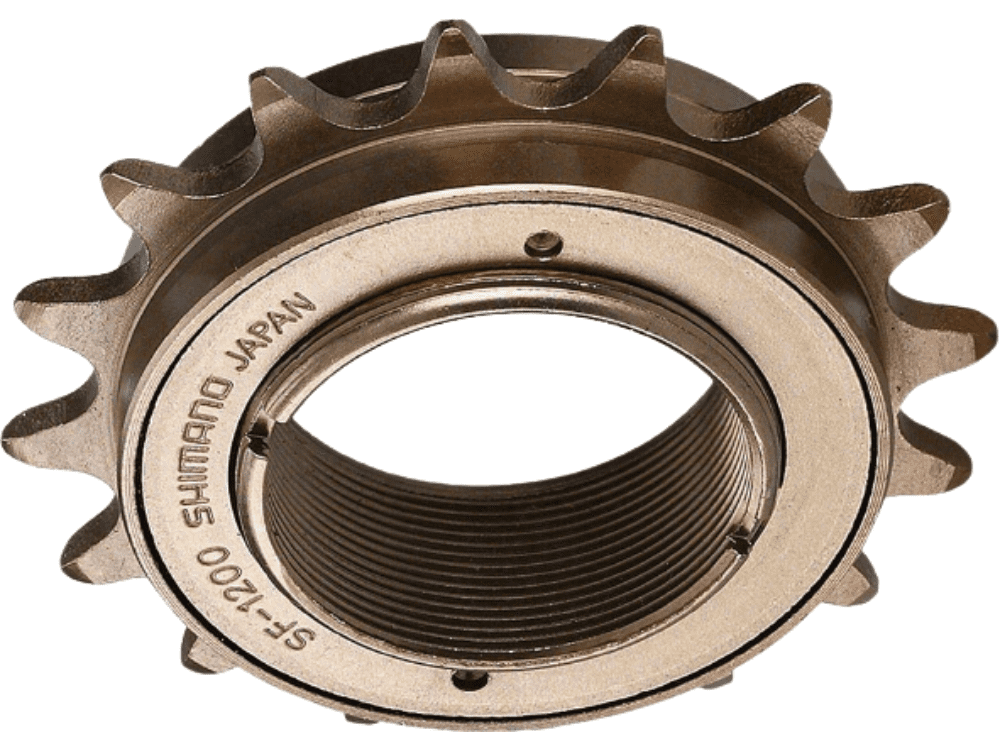
This is then mounted on top of a threaded hub. The freewheel is directly screwed to the back wheel of the bike.
When you pedal forward, the mechanism locks and makes the train drive the wheel. Then, it allows you to cruise without pedaling or rolling backward.
You don’t have to mount the freewheel to a hub, and it comes to up to seven cogs or just one cog. It’s rare to find a modern bike with a freewheel, but they are usually on single-sped bikes.
Sometimes, the one-cog freewheel is fixed, so you have to pedal unless your bike is stationary.
A freewheel is often compared to a freehub, but the latter has no cogs. It is a hub located on the rear bike wheel, and the cassette sprockets slide into it when you ride.
In this system, the chain drives a cassette, and the ratchet locks as the cassette drives the wheel.
What is a Cassette?
On the other hand, the freewheel is a cassette that has been used on bikes since the 1970s.
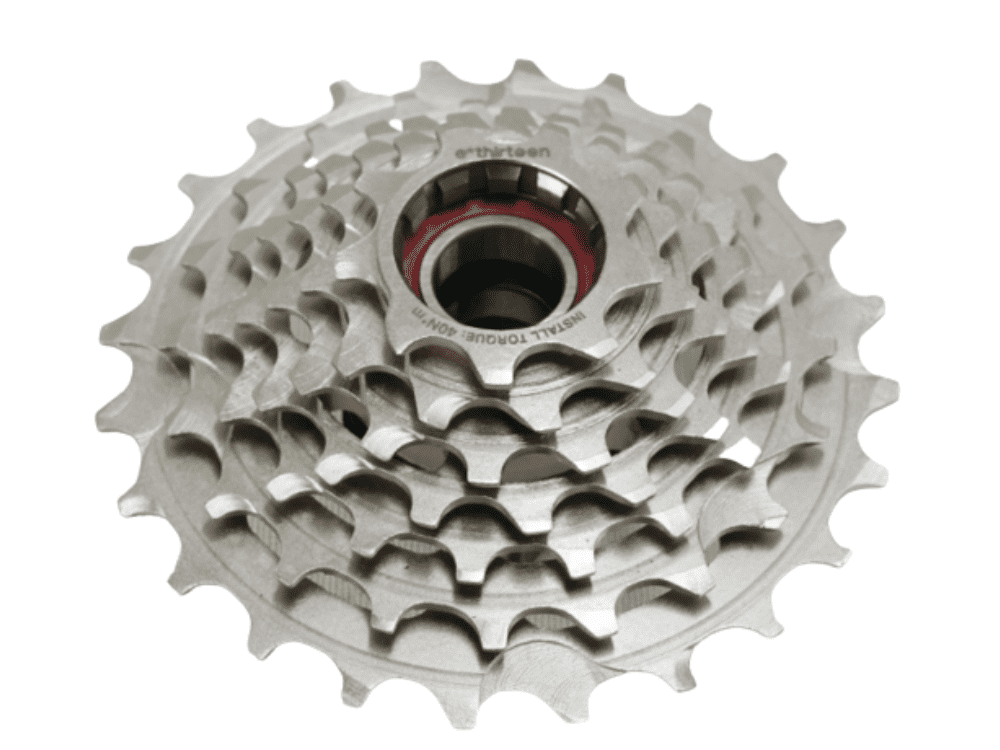
They are available on expensive and affordable bikes, and you can find them on different derailleur bicycles.
The cassette features up to seven cogs that will slot one by one into the cassette body, and the entire thing is held in one place by a locking nut.
Cassettes can offer up to 12 speeds and provide more flexibility on different terrains.
There are different types of cassettes that you can see on your bike, unlike the freewheel, which has only one type.
Both types have different mechanical designs, whether you are using a road or mountain bike.
Mountain Bike Cassette
Mountain bikes are required to tackle different kinds of terrains and challenges off the road, which is why you need special cassettes.
The cassettes also require different kinds of sprocket sizes. Mountain bike cassettes have evolved from 11-, 12- and 13-speed cassettes.
Since there are more sprockets on the mountain bike cassette, it simply means that there are more teeth on the gear.
So, touch climbs are more seamless with the optimized gear, and there is less space between each gear. The mountain bike will not need a triple chainset if it uses a cassette.
Road Bike Cassette
As for road bikes, you can have an 11, 12, or 13-teeth small-size sprocket or a 21 and 32-tooth large-size sprocket.
The wide range of choices is because road bikes have to make smaller jumps between gears, unlike mountain bike, which makes larger jumps.
A lot of road bikes come with 12 to 25 cassettes along with a standard or compact chainset for riding on flat terrains.
When choosing a road bike cassette, you need to think about the kind of sprockets that your bike needs.
If you get a large sprocket with a small derailleur on your bike, you will have to deal with overstretching and slackness.
So, match the size of the derailleur with that of the sprockets.
Which One Do I Have?
It might be difficult to separate a freewheel from a cassette since they are both similar.
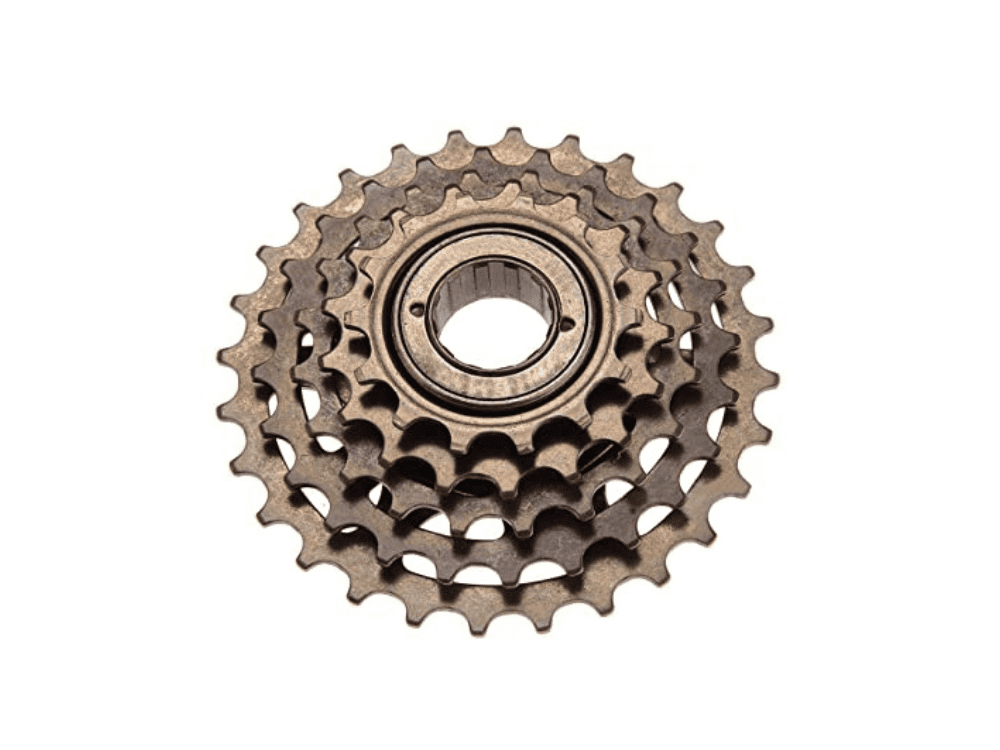
But, the main difference is that the tool fitting on the freewheel does not rotate with the gears, while on the cassette, it spins with the gears.
So, you can find out the difference by checking the rotating action of the innermost fitting.
You will have to take off the back wheel and spin the gears backward to check this.
Can They Be Used Interchangeably?
Cassettes and freewheels cannot be used interchangeably. You cannot put a cassette on a freewheel hub or a freewheel on a cassette hub.
The cassette hub is specifically designed to take a cassette. As for the freewheel, it uses a threaded system which the cassette does not have.
If you already have a cassette or freewheel cog system, it’s best to stick to it because it’s usually more expensive and difficult to swap.
You might require a new wheel, chain, gear shifter, and threaded system if you are moving to a freewheel.
You also need tools used on cassettes and freewheel if you want to exchange them.
Which Is Better in Freewheel and Cassette?
The cog system that you choose between freewheel and cassette depends on your biking style and needs.
Since the freewheel takes fewer gears, it is ideal for casual bikers that don’t need more gears. It is also helpful for coasting and allows riders to rest their legs while riding.
But, the freewheel is not an ideal choice if you’re working out with your bike.
If you’re going to be riding on terrains and speeds, the cassette is a better option.
The cassette system consists of individual components that make it less bulky and lightweight. It is easier to replace the cassette system than it is for the freewheel.
